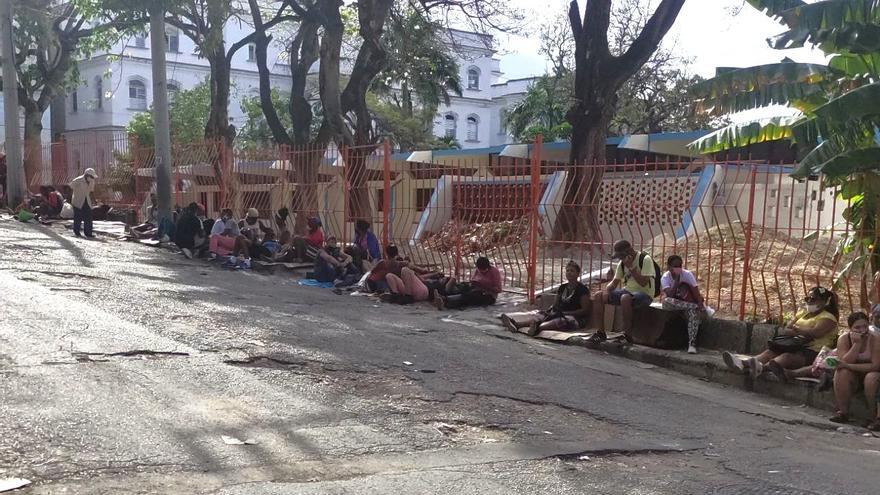
![]() 14ymedio, Havana, 29 June 2022 — “Healthy and adequate food” is already a right in Cuba, or at least that is what Parliament’s Law 148/2022 and Decree 67/2022, signed by the Council of Ministers, determine. At a time when the country is bordering on famine, and when neither money nor lines guarantee food, the Government publishes its Food Sovereignty Law.
14ymedio, Havana, 29 June 2022 — “Healthy and adequate food” is already a right in Cuba, or at least that is what Parliament’s Law 148/2022 and Decree 67/2022, signed by the Council of Ministers, determine. At a time when the country is bordering on famine, and when neither money nor lines guarantee food, the Government publishes its Food Sovereignty Law.
“Healthy and adequate food” is already a right in Cuba, or at least that is what Parliament’s Law 148/2022 and Decree 67/2022, signed by the Council of Ministers, determine. At a time when the country is bordering on famine, and when neither money nor queues guarantee food, the Government publishes its Food Sovereignty Law.
The law, approved by the Assembly of People’s Power in May of this year, is complemented by a ministerial decree that defines its application schedule. Although it will enter into force in October, different organizations and producers will have to analyze the content of this law in its municipal and provincial context.
Mayra Cruz Legón, legal director of the Ministry of Agriculture, stated during a press conference that the law will focus on the processes of food production, marketing and consumption. The text also covers the possibility of productive autonomy in the municipalities and a manual of good food practices.
Cruz Legón foresees that the law will contribute to alleviating the serious food situation in the country, for which implementation and advisory commissions will be created at different levels. However, the correct implementation of this plan is hampered by the different agrarian bureaucracies in the provinces and by the administrative disinterest of the Government.
Some analysts, such as Elías Amor Bravo, already foresaw the possibility that the document is just a diplomatic move by the Cuban government, noted internationally for its inability to guarantee conditions for adequate food.
“One has the impression that this law of the regime has the purpose of trying to remove Cuba from the shameful list of countries that the United Nations World Food Program included as a potential victim of food insecurity back in 2019, placing in said report Cuba at the same level as Haiti,” the economist said in May.
According to Amor, it is necessary to consider that “that evidence was a severe international blow to the Cuban communists, who pulled this law out of the hat, implemented thanks to funds from the European Union under the auspices of the United Nations Organization for the Agriculture and Food (FAO), to try to change the perception of the United Nations.”
Daily life on the Island, however, will hardly benefit from the new law. The lack of products, the lack of maintenance in the factories, the corruption of the agricultural and gastronomic sector, the little labor incentive and the legal obstacles to producers and merchants do not allow “unlocking” the Cuban food dilemma.
Law 148/2022 defines food sovereignty as the “ability of the nation to produce food in a sustainable manner and to give the entire population access to sufficient, diverse, balanced, nutritious, safe and healthy food, reducing dependence on means and external inputs with respect for cultural diversity and environmental responsibility.”
In sharp contrast to this concept, the reality of the Island is far from being the utopia of abundance and effectiveness proclaimed by the Government and its new law.
____________
COLLABORATE WITH OUR WORK: The 14ymedio team is committed to practicing serious journalism that reflects Cuba’s reality in all its depth. Thank you for joining us on this long journey. We invite you to continue supporting us by becoming a member of 14ymedio now. Together we can continue transforming journalism in Cuba.
